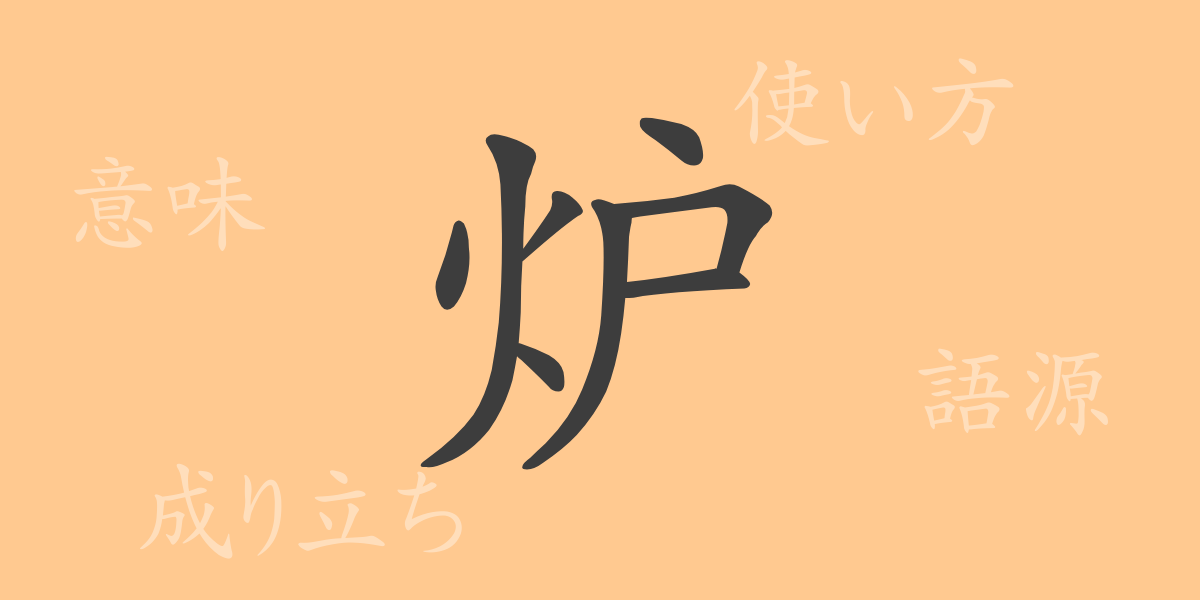The warmth of the 炉 (ro) has been a comforting presence in people’s lives since ancient times. In this article, we will focus on the Japanese kanji “炉” (ro), delving into its etymology and modern usage. Let’s explore the rich meaning and charm of the “炉” (ro) together.
The Origin of 炉 (ro)
The origin of the kanji “炉” (ro) dates back to ancient China. The character represents the shape of a place where earth is piled up around a fire, meaning a place to use fire, or “炉” (ro). From this shape, the image of a “炉” (ro) as a place where people gather around a fire to warm up and cook meals was born.
The Meaning and Usage of 炉 (ro)
The basic meaning of “炉” (ro) refers to a device or place where fire is used to obtain heat. In a broader sense, it includes various devices that utilize heat, such as stoves for warmth and industrial furnaces for melting iron or glass. In terms of usage, it is often seen in contexts related to heating or cooking, such as “暖炉” (danro – fireplace) and “炉端” (robatta – fireside).
Reading, Stroke Count, and Radical of 炉 (ro)
The kanji “炉” (ro) has been familiar in the Japanese language for a long time. Below are its details:
- Reading: On’yomi (音読み) is “ロ” (ro), Kun’yomi (訓読み) is “いろり” (irori)
- Stroke count: 8 strokes in total
- Radical: 火部 (ひへん – hihen)
Idioms, Phrases, and Proverbs Using 炉 (ro)
There are numerous idioms and phrases in Japanese that include “炉” (ro). For example, “炉辺談話” (roben danwa) describes the scene of family or close friends gathering around a fireside to relax and chat. The word “炉心” (roshin) refers to the core of a nuclear reactor and metaphorically means the core or center of something. These words reflect the warmth and central image that “炉” (ro) conveys.
Summary of 炉 (ro)
The “炉” (ro) has been an indispensable presence in people’s lives since ancient times, functioning as more than just a tool for heating or cooking. It has also served as a place to deepen family bonds and promote communication. Even in modern times, its symbolic meaning remains vibrant, living on in our language and culture. We hope this article provides an opportunity to appreciate the multifaceted charm of “炉” (ro) and recognize its value in daily life.

























